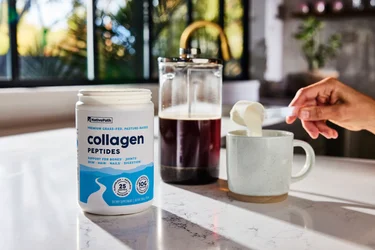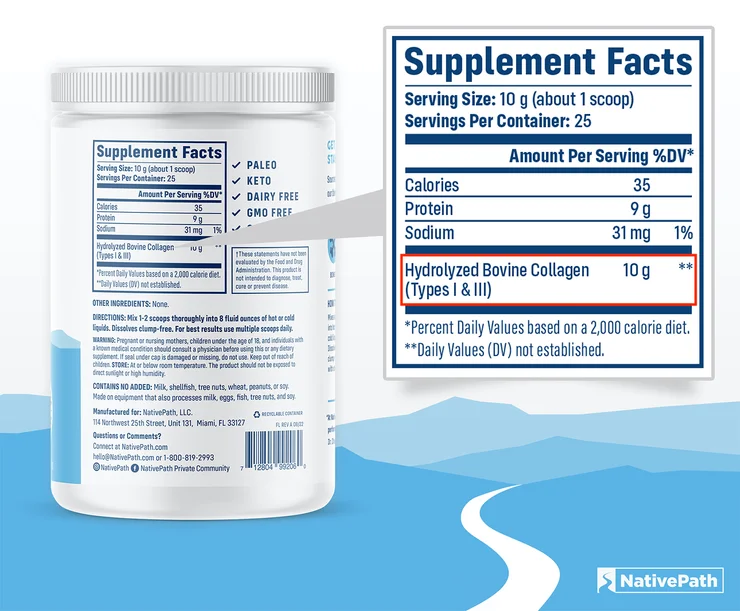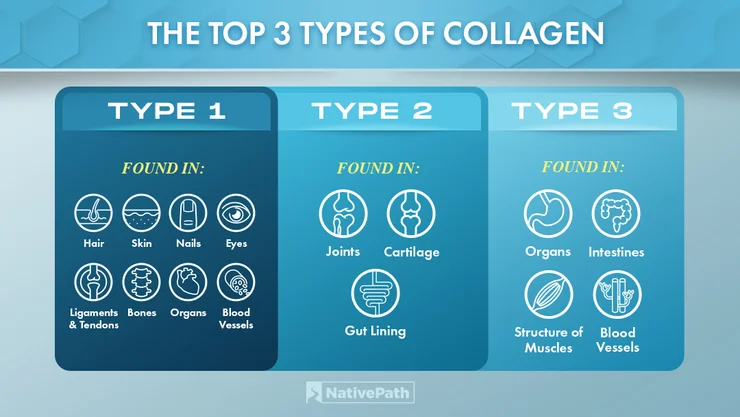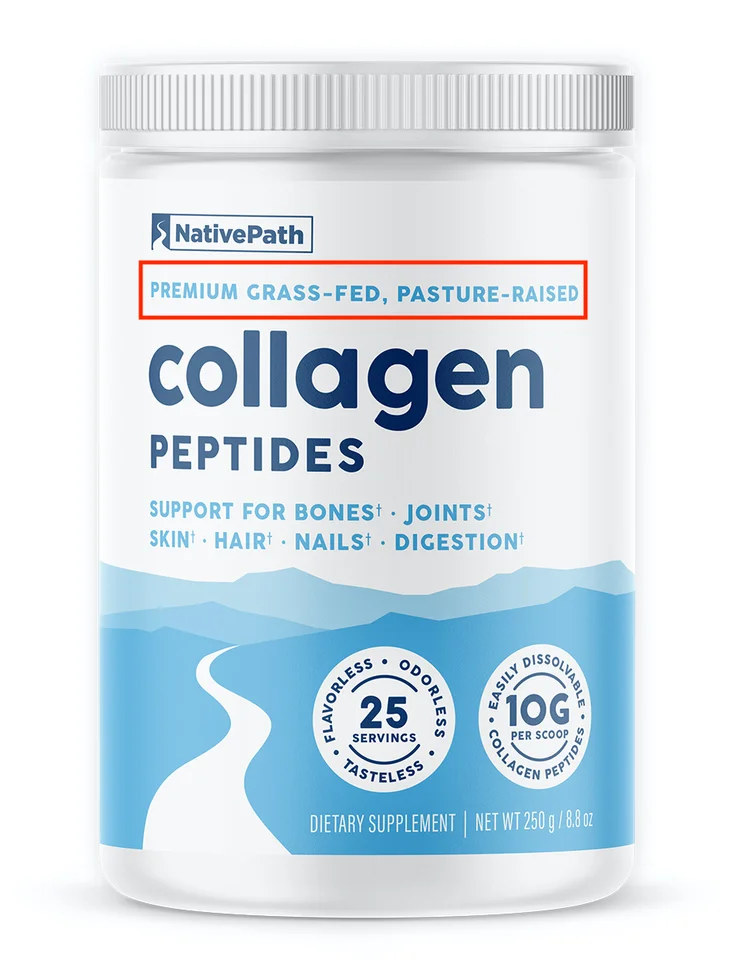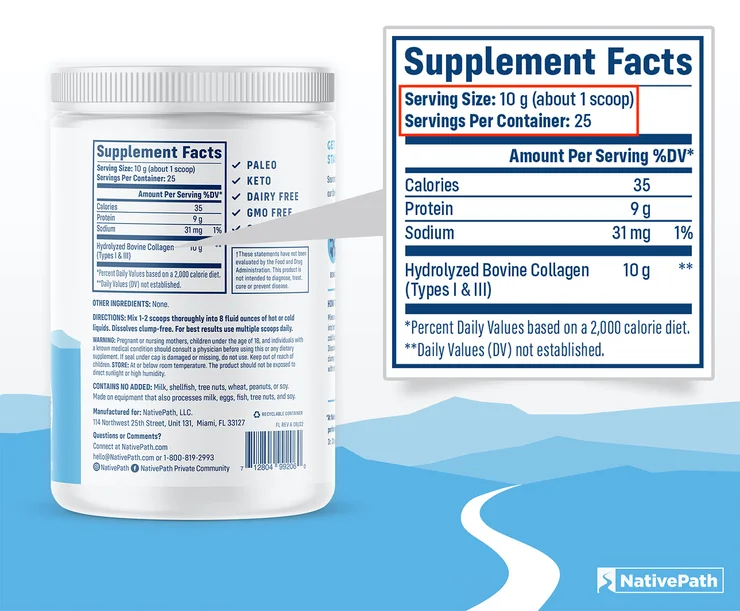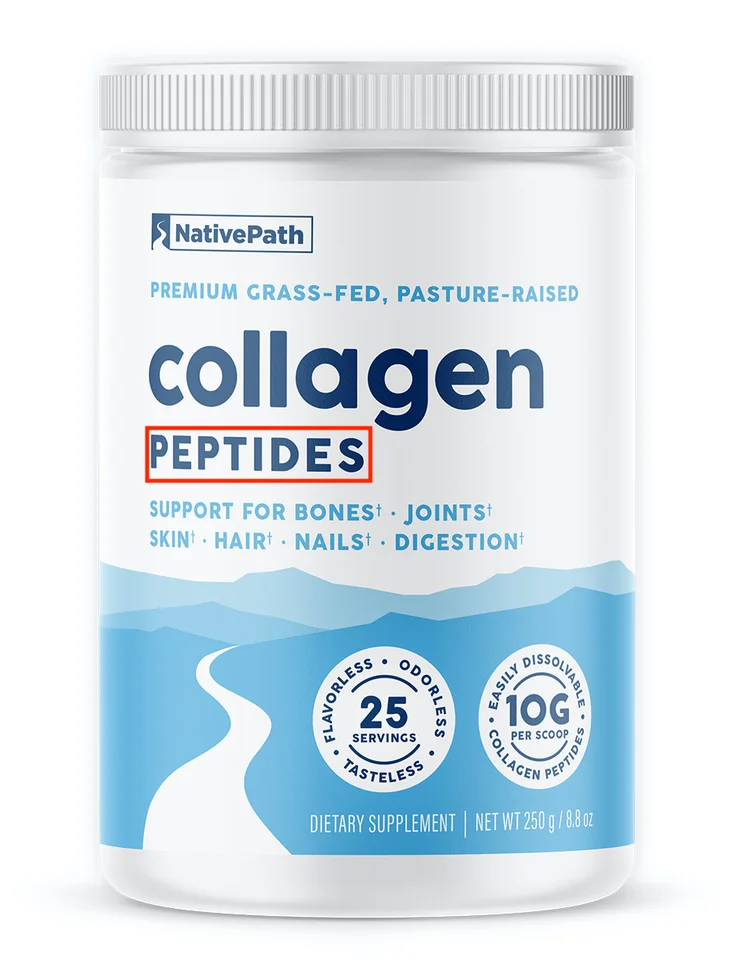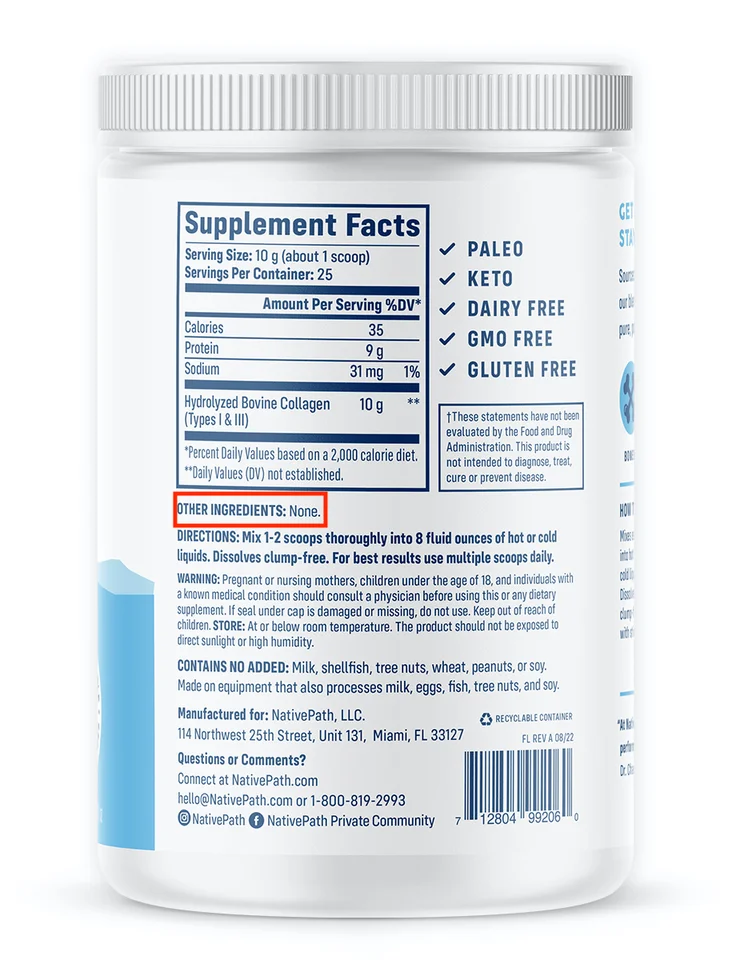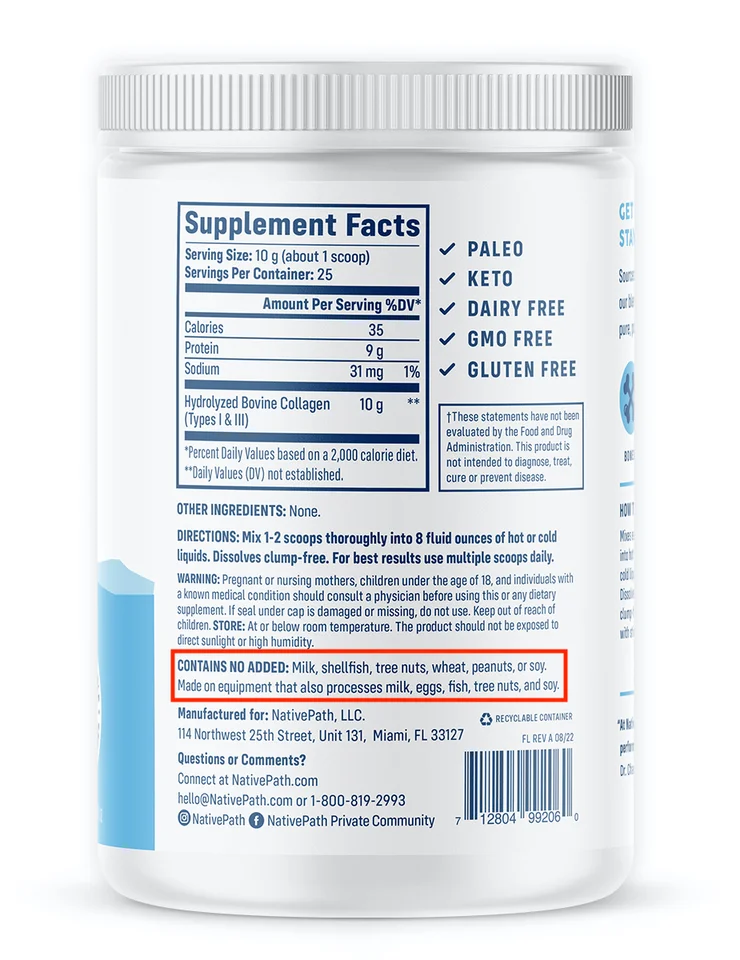Collagen is one of the most popular nutritional supplements—and for good reason.
Studies have found conclusive evidence that collagen supplementation can boost your joint and skin health, strengthen hair and nails, promote graceful aging, and more. Now, in 2023, the natural supplement market is flooded with every variation of collagen product imaginable—all boasting impressive anti-aging results.
But before you go adding just any collagen powder into your coffee or smoothies, there are several critical factors that impact its effectiveness (and safety).
In this article, we’ll cover what collagen is, its role in your body (especially as you age), and how to choose the best collagen supplement.

